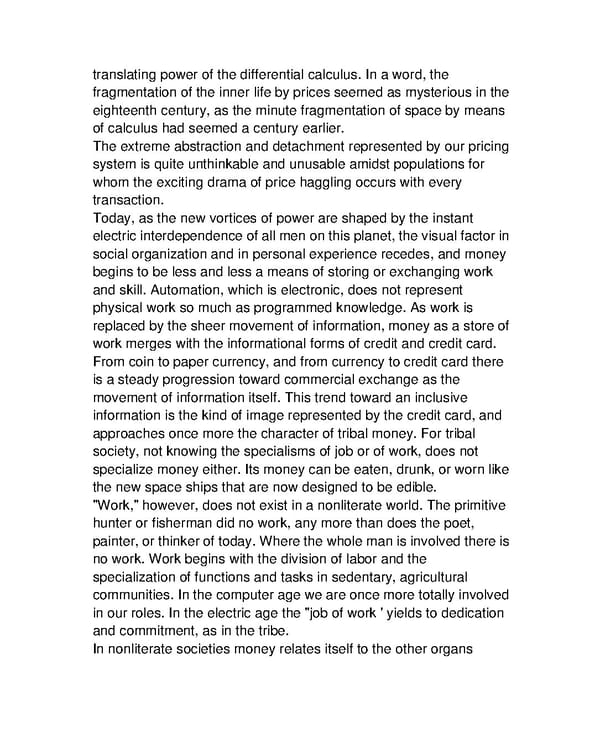translating power of the differential calculus. In a word, the fragmentation of the inner life by prices seemed as mysterious in the eighteenth century, as the minute fragmentation of space by means of calculus had seemed a century earlier. The extreme abstraction and detachment represented by our pricing system is quite unthinkable and unusable amidst populations for whom the exciting drama of price haggling occurs with every transaction. Today, as the new vortices of power are shaped by the instant electric interdependence of all men on this planet, the visual factor in social organization and in personal experience recedes, and money begins to be less and less a means of storing or exchanging work and skill. Automation, which is electronic, does not represent physical work so much as programmed knowledge. As work is replaced by the sheer movement of information, money as a store of work merges with the informational forms of credit and credit card. From coin to paper currency, and from currency to credit card there is a steady progression toward commercial exchange as the movement of information itself. This trend toward an inclusive information is the kind of image represented by the credit card, and approaches once more the character of tribal money. For tribal society, not knowing the specialisms of job or of work, does not specialize money either. Its money can be eaten, drunk, or worn like the new space ships that are now designed to be edible. "Work," however, does not exist in a nonliterate world. The primitive hunter or fisherman did no work, any more than does the poet, painter, or thinker of today. Where the whole man is involved there is no work. Work begins with the division of labor and the specialization of functions and tasks in sedentary, agricultural communities. In the computer age we are once more totally involved in our roles. In the electric age the "job of work ' yields to dedication and commitment, as in the tribe. In nonliterate societies money relates itself to the other organs
 Understanding Media by Marshall McLuhan Page 153 Page 155
Understanding Media by Marshall McLuhan Page 153 Page 155